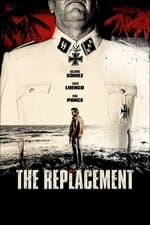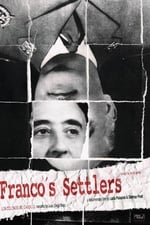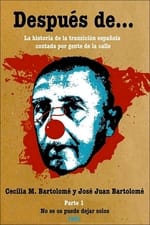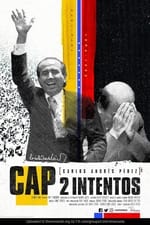Informations personnelles
Célèbre pour Interprétation
Apparitions connues 16
Genre Homme
Date de naissance 5 mars 1942 (82 ans)
Lieu de naissance Sevilla, Sevilla, Andalucía, Spain
Alias
- Felipe González Márquez
Score de contenu
100
Superbe ! Cette fiche semble complète !
Connectez-vous afin de
signaler un problème.
Biographie
Felipe González Márquez (born 5 March 1942) is a Spanish lawyer, professor, and politician, who was the Secretary-General of the Spanish Socialist Workers' Party (PSOE) from 1974 to 1997, and the 3rd Prime Minister of Spain since the restoration of democracy, from 1982 to 1996. He remains the longest-serving Prime Minister of Spain to be freely elected.
González joined the PSOE in 1964 when it was banned under the Francoist regime. He obtained a law degree from the University of Seville in 1965. In 1974, the PSOE elected González as its Secretary-General after a split in its 26th Congress. After Franco's death and the beginning of the Spanish transition to democracy, González obtained a seat in the Congress of Deputies after he led the PSOE candidacy in the 1977 general election, but lost to Adolfo Suárez.
After the PSOE victory in the 1982 general election, González formed his first majority government, backed by 202 out of the 350 deputies at the Congress of Deputies, and led the Government of Spain for thirteen and a half years after three additional victories in the 1986, 1989 and 1993 general elections. In 1996, González lost the election to José María Aznar and the People's Party and was elected to the Congress of Deputies for the last time in the 2000 general election, from Seville.
González was born in Bellavista, Seville, the son of a small dairy farmer. He has a sister called Lola González Márquez, married to Francisco Germán Palomino Romera, by whom she has two sons, Felipe and Germán Palomino González. He studied law at Seville University and started his career as attorney specialising in labor law. While at the University he met members of the clandestine socialist trade union Unión General de Trabajadores (UGT). He also contacted members of the PSOE and started taking part in the party's clandestine activity, necessary under the dictatorship of Franco. During that time he adopted the alias Isidoro and moved to Madrid. He was elected Secretary General of the Party at the Suresnes Congress, in France.
By the time of Franco's death, González had become the most prominent figure among the left-wing of the democratic opposition to the regime, and played a critical role, along with then serving Prime Minister Adolfo Suárez, in the Spanish transition to democracy. During the Suárez government, General and Deputy Prime Minister Manuel Gutiérrez Mellado asked González not to raise the debate of the Civil War and Francoist repression until the death of those of his generation.
In the first democratic general election after Franco's death, held in 1977, the PSOE became the second most-voted for party, and this served González to appear as a young, active and promising leader. However, he did not win the 1979 election and had to wait for 1982 and the dissolution of the Union of the Democratic Centre party to come into office.
In the 1982 general election held on 28 October 1982, the PSOE gained 48.3% of the vote and 202 deputies (out of 350). On 2 December González became President of the Government of Spain, with Alfonso Guerra as his deputy. He was the first socialist to hold the post since the Spanish Civil War, and his government was the first since then in which none of its members had served under Francoism. ...
Source: Article "Felipe González" from Wikipedia in English, licensed under CC-BY-SA 3.0.
Felipe González Márquez (born 5 March 1942) is a Spanish lawyer, professor, and politician, who was the Secretary-General of the Spanish Socialist Workers' Party (PSOE) from 1974 to 1997, and the 3rd Prime Minister of Spain since the restoration of democracy, from 1982 to 1996. He remains the longest-serving Prime Minister of Spain to be freely elected.
González joined the PSOE in 1964 when it was banned under the Francoist regime. He obtained a law degree from the University of Seville in 1965. In 1974, the PSOE elected González as its Secretary-General after a split in its 26th Congress. After Franco's death and the beginning of the Spanish transition to democracy, González obtained a seat in the Congress of Deputies after he led the PSOE candidacy in the 1977 general election, but lost to Adolfo Suárez.
After the PSOE victory in the 1982 general election, González formed his first majority government, backed by 202 out of the 350 deputies at the Congress of Deputies, and led the Government of Spain for thirteen and a half years after three additional victories in the 1986, 1989 and 1993 general elections. In 1996, González lost the election to José María Aznar and the People's Party and was elected to the Congress of Deputies for the last time in the 2000 general election, from Seville.
González was born in Bellavista, Seville, the son of a small dairy farmer. He has a sister called Lola González Márquez, married to Francisco Germán Palomino Romera, by whom she has two sons, Felipe and Germán Palomino González. He studied law at Seville University and started his career as attorney specialising in labor law. While at the University he met members of the clandestine socialist trade union Unión General de Trabajadores (UGT). He also contacted members of the PSOE and started taking part in the party's clandestine activity, necessary under the dictatorship of Franco. During that time he adopted the alias Isidoro and moved to Madrid. He was elected Secretary General of the Party at the Suresnes Congress, in France.
By the time of Franco's death, González had become the most prominent figure among the left-wing of the democratic opposition to the regime, and played a critical role, along with then serving Prime Minister Adolfo Suárez, in the Spanish transition to democracy. During the Suárez government, General and Deputy Prime Minister Manuel Gutiérrez Mellado asked González not to raise the debate of the Civil War and Francoist repression until the death of those of his generation.
In the first democratic general election after Franco's death, held in 1977, the PSOE became the second most-voted for party, and this served González to appear as a young, active and promising leader. However, he did not win the 1979 election and had to wait for 1982 and the dissolution of the Union of the Democratic Centre party to come into office.
In the 1982 general election held on 28 October 1982, the PSOE gained 48.3% of the vote and 202 deputies (out of 350). On 2 December González became President of the Government of Spain, with Alfonso Guerra as his deputy. He was the first socialist to hold the post since the Spanish Civil War, and his government was the first since then in which none of its members had served under Francoism. ...
Source: Article "Felipe González" from Wikipedia in English, licensed under CC-BY-SA 3.0.
Interprétation
|
||||||
|
||||||
|
||||||
|
||||||
|
||||||
|
||||||
|
||||||
|
||||||
|
||||||
|
||||||
|
||||||
|
||||||
|








